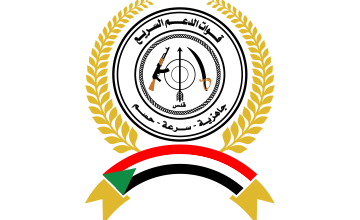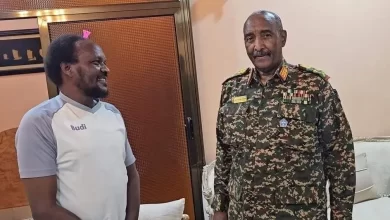Sudan’s Transitional Constitution and opportunities for building a Citizenship State
Daw Al-Bayt Youssef Ahmed Hassan

The largest civil and military political bloc in the history of modern Sudan signed the draft of the Transitional Constitution, which explicitly stipulated the secularism and federalism of the Sudanese State for the first time in history, as most political leaders in Sudan continued to deal in the language of evasion in regards to the subject, which ought to be clearly defined.
The Transitional Constitution, which was signed in Nairobi on (March 4th, 2025), is considered one of the strongest and most eloquent constitutions in the country’s history because it answered numerous questions regarding how Sudan is governed and how to manage diversity and pluralism amongst the people of Sudan in addition to the best way to manage resources.
The secular system of government is a one that is neutral towards issues related to religion and is based on the principle of separating the government and its political institutions from religious authority. Therefore, this is considered a sign of respect for religions, as they don’t interfere with governance and political issues. Which begs the question, what constitutes an issue if everyone has the right to practice religious rituals according to the customs, laws and systems that govern each specific religious or cultural group within the State.!
The Transitional Constitution didn’t stipulate the secularization of society, and in order not to confuse matters, secularism doesn’t mean chaotic freedom -as many who hear about secularism but don’t understand its nature, believe. Sudan wasn’t more committed to religion than the State of Türkiye, which applies the secular system that contributed to the progress, development and prosperity of the Turkish State.
Another issue addressed by the Transitional Constitution for the year (2025) in Nairobi is the federal system, which would address the structural imbalance in the distribution of resources and thus equality in development, services and job opportunities. This is precisely what the State failed to achieve since (1956), as the issue of fair distribution of wealth remained one of the main reasons behind the outbreak of wars in Sudan.
Certain groups from regions that don’t possess any resources that contribute to the national income controlled the country’s financial resources and employed them in a manner that reflects favoritism, opportunism and racism, it deprived the residents and people of productive regions of their right to development and basic services granted for citizens, which -in turn- had the greatest impact on the development of those regions in the fields of health, education, agriculture, industry and the environment. The State contributed directly to deliberate marginalization and social injustice, which resulted in poverty, unemployment and corruption, instilled the concept of not accepting the other, in addition to creating a sense of ethnic and cultural superiority within the State.
The Transitional Constitution of Sudan addressed this issue by adopting the federal system of government, which gives each region the inherent right to manage its financial and economic resources according to systems and laws that determine the proportions of the Center in a manner that doesn’t conflict with the right of the region’s citizens to benefit from their resources to contribute to sustainable development, combat poverty and unemployment, in addition to putting forth diligent efforts to create a social and health insurance system that aims to achieve stability and balance.
The Transitional Constitution explicitly stipulated the necessity of forming professional Regular Forces capable of achieving the goals stipulated in the Constitution, provided that these regular forces are far removed from politics, forfeiting any link to any political system, provided that they are based on justice and equality in opportunities to join those forces according to specific criteria, including, for example, the population census criterion for each region to ensure that a specific ethnic group or a specific geographical area doesn’t dominate or represent the majority of those forces, which in turn will ensure the integrity of the decisions issued by the leadership body regarding the protection of civilians as well as the Constitution and borders of the Sudanese State.
Accordingly, this Constitution is undisputedly the best and most appropriate for governing Sudan, this vast country with multiple cultures and religions, which makes opportunities for national unity an absolute priority for all the people from different regions, and thus employing that unity for the purposes of strength, prosperity, security and stability.
From the city of Kabale, Uganda
March 6th, 2025





